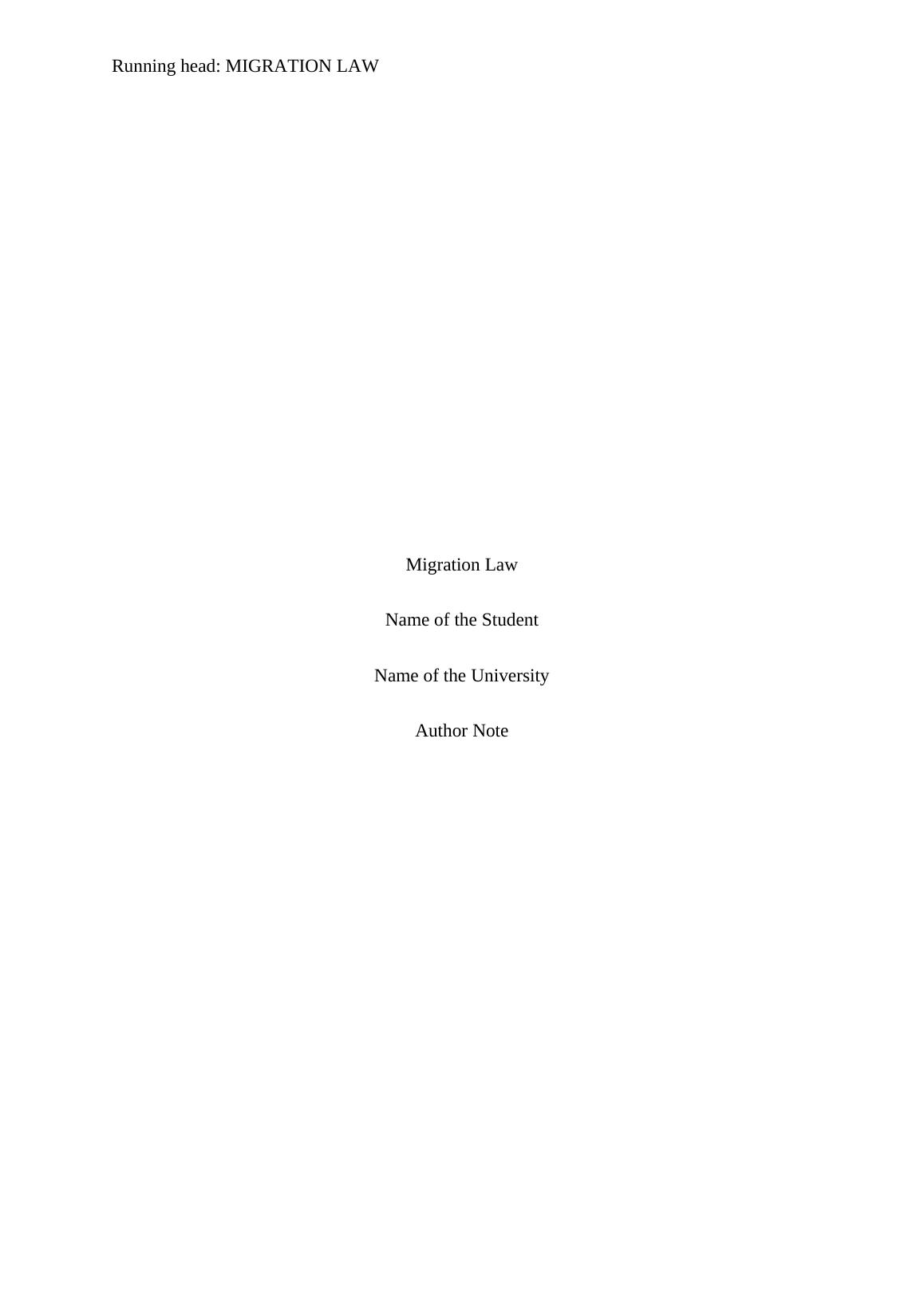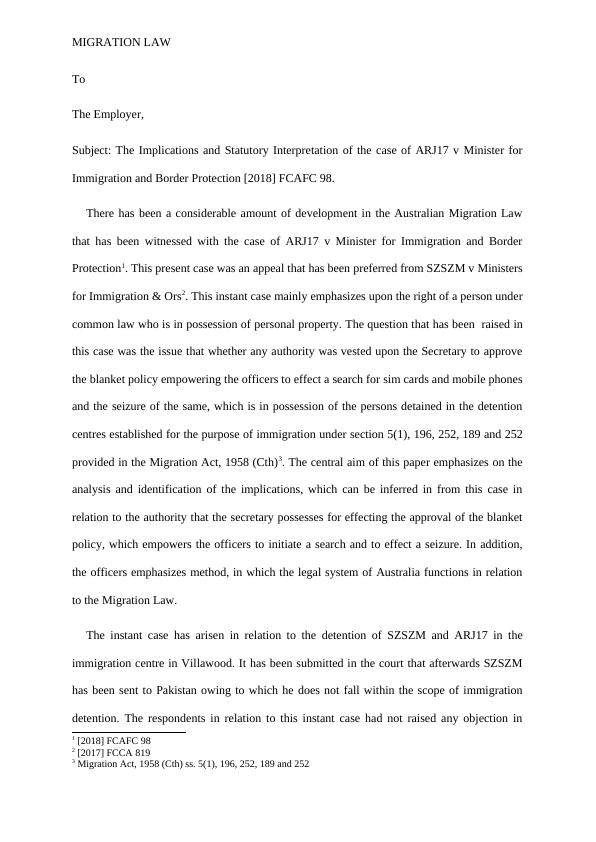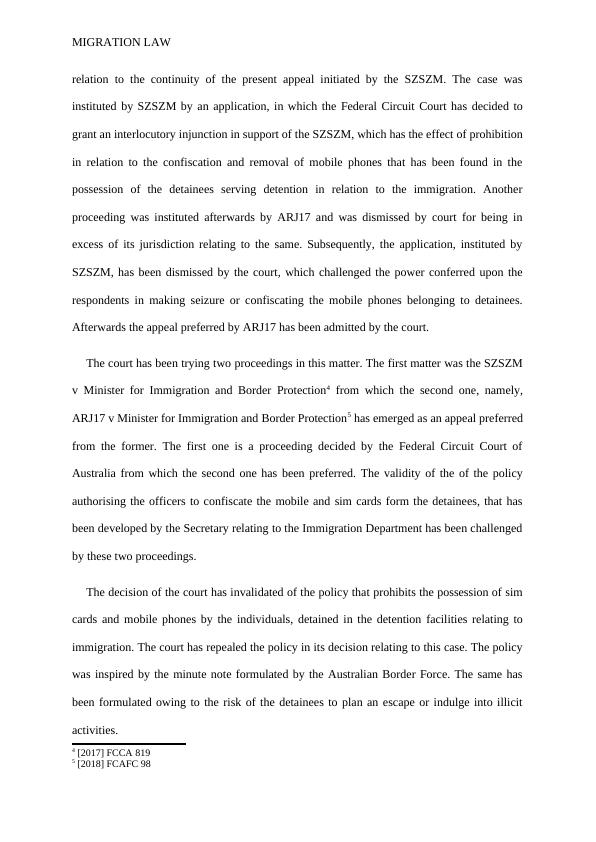Implications and Statutory Interpretation of ARJ17 v Minister for Immigration and Border Protection
Answering questions related to Australian Migration Law and demonstrating legal skills.
7 Pages1690 Words119 Views
Added on 2023-04-19
About This Document
This paper analyzes the implications and statutory interpretation of the case of ARJ17 v Minister for Immigration and Border Protection. It focuses on the authority of the Secretary to approve a blanket policy empowering officers to search and seize personal property of detainees in immigration detention centers.
Implications and Statutory Interpretation of ARJ17 v Minister for Immigration and Border Protection
Answering questions related to Australian Migration Law and demonstrating legal skills.
Added on 2023-04-19
ShareRelated Documents
End of preview
Want to access all the pages? Upload your documents or become a member.
Implications and Statutory interpretation of ARJ17 v Minister for Immigration and Border Protection
|7
|1739
|86
Implications and Statutory Interpretation of ARJ17 v Minister for Immigration and Border Protection
|7
|1711
|279
Implications of Beni v Minister for Immigration and Border Protection
|9
|2264
|100
Public Law Assignment Solved
|6
|1290
|466
Migration Law
|7
|1580
|42
Migration Law and its Application in Australia: A Case Study of Chen v Minister for Immigration and Border Protection [2013] FCAFC 133
|7
|1714
|256



